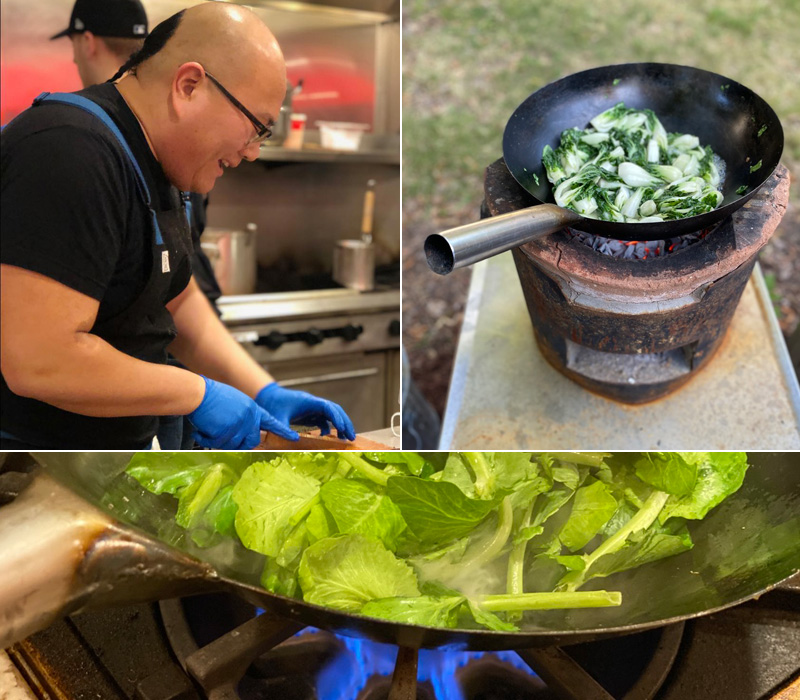Some people have a grandpa who can teach them how to fold dumplings, or an auntie who can share the secrets of her incredible kimchi. For the rest of us, there’s Hot Wok Academy, a Minneapolis-based cooking school that aims to empower students with the skills to prepare Asian dishes.
Hot Wok Academy is a career pivot for founder Ming-Jinn Tong, a former pastor who also works as an intercultural coach and writer. His passion for food was sparked at an early age, and he learned to cook from his family in the U.S. and Taiwan. This past January, he started teaching at Cooks of Crocus Hill.
“I just found I loved it,” he says. “Those classes were just so much fun. I got really into it, I loved designing my courses. I found that people had a lot of interest in what we were talking about, in Asian cooking, in high heat wok sear, even in exploring Asian ingredients in food that they were unfamiliar with.”
‘THERE’S NO RIGHT AND THERE’S NO WRONG’
Tong notes that he had a “top-notch” experience teaching at Cooks of Crocus Hill, but their system is designed for a Western style of cooking.
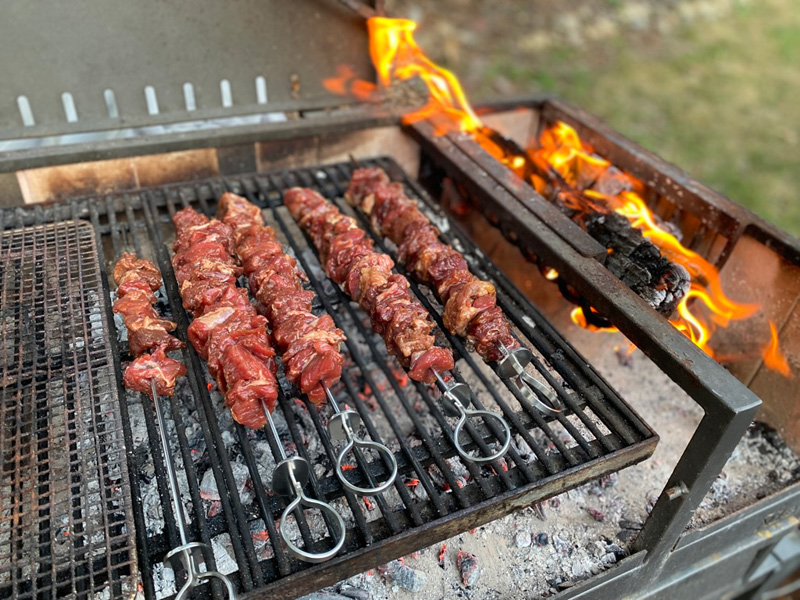
“For instance, one of the things we were required to do as chefs was to create the recipe and write it down, including all the measurements for salt, for vinegar. And that’s just not the way that Asian families teach cooking. We don’t do recipes. I never saw my mom ever use a recipe.”
“My grandfather and my aunt [in Taiwan], they taught me to cook as well. And what they do, they tell you, these are the ingredients that you need. And they kind of expect that you know what the ingredients taste like, what they’re for, and they don’t tell you how much.”
“The [cooking] system in Asian homes is relationship based—because my mom or my grandfather is with me in the kitchen, standing by me, I don’t need a recipe.”
Tong’s teaching approach at Hot Wok Academy centers relationships and flexibility. “I want my cooking school to not be so heavily based on measuring or quantity or just the right amount. I really want it to be based on relationships. Come, spend time with me, we’re going to do it in the way that I like it, and if you don’t like that, you can change it. If you don’t like it that spicy, don’t add the spice. If you like it spicy, add more. There’s no right and there’s no wrong to it.”
FOUR WAYS TO LEARN
Hot Wok Academy offers four different ways to learn: cooking classes, pin programs, guided shopping trips, and a YouTube channel.
Cooking classes (which typically cost $89) focus on learning how to make a specific dish and accompanying sides and sauces, such as Laotian lumpia egg rolls, Korean fried chicken, or shrimp and pork wontons. Attendance is capped at nine participants, to ensure plenty of one-on-one attention.
The six-week pin programs (which cost $499) provide an in-depth exploration of a specific facet of Asian cooking, geared towards the “serious home cook.” (The name comes from the pins students earn upon completion.)
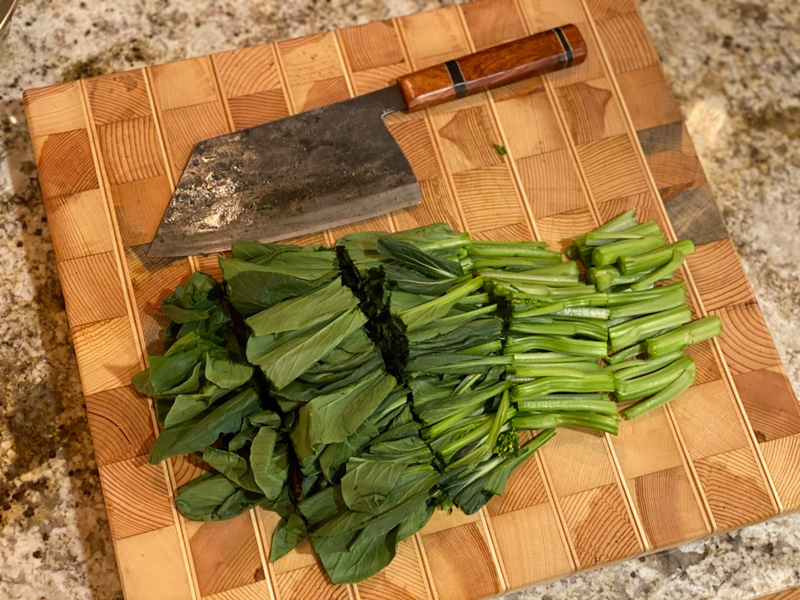
“The first one that’s being offered is wok cooking,” Tong says. “We’re going to start all the way from the different kinds of metals that woks are made from and the benefits to each kind. And we’ll walk through seasoning your wok, what are the tools you need…We’ll talk about different techniques with the wok. Then of course, we’ll dive more deeply into different categories of food: leafy vegetables, non-leafy vegetables, proteins, braises, if you want to deep fry in your wok, all those different things.”
A unique way to learn about Asian ingredients is via guided shopping trips at Minneapolis’ United Noodles and St. Paul’s Dragon Star Asian markets. The hour-long excursions (which cost each participant $39) cover four main areas: fresh produce, sauces, dry goods, and prepared foods. A Hot Wok Academy host will provide a brief overview of each area and then answer participants’ questions.
“I really want it to be a question-driven time to talk and help people navigate an Asian store,” says Tong. “A lot of people didn’t grow up going to Asian stores, [so] I think when they go in they’re like, ‘I don’t know what to do with all this stuff. What is this for, why is there dark mushroom soy sauce versus thick or thin soy sauce, what does that mean?’ It’s a time to help people grow and understand [the ingredients].”
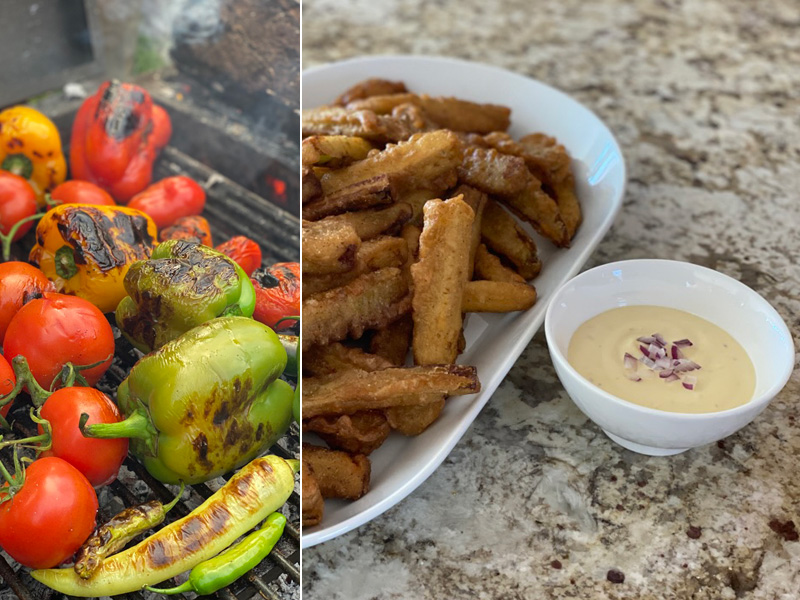
As an added bonus, participants can choose two items for the group to sample, and each participant will receive a 5% discount on all purchases made that day. Like the classes and pin programs, the tours are a small group experience, with a maximum of six participants.
For those who prefer remote learning, Hot Wok Academy has a YouTube channel covering the basics of Asian cooking, including ingredients, equipment, techniques, and classic dishes.
Tong will serve as the instructor for some classes, but he’s also assembled a lineup of “aunties and uncles” with a wide range of cultural and professional backgrounds. Some are familiar faces in the Twin Cities dining scene, like James Beard finalist Yia Vang and Trung Pham of Pham’s Rice Bowl. Others are seasoned home cooks.
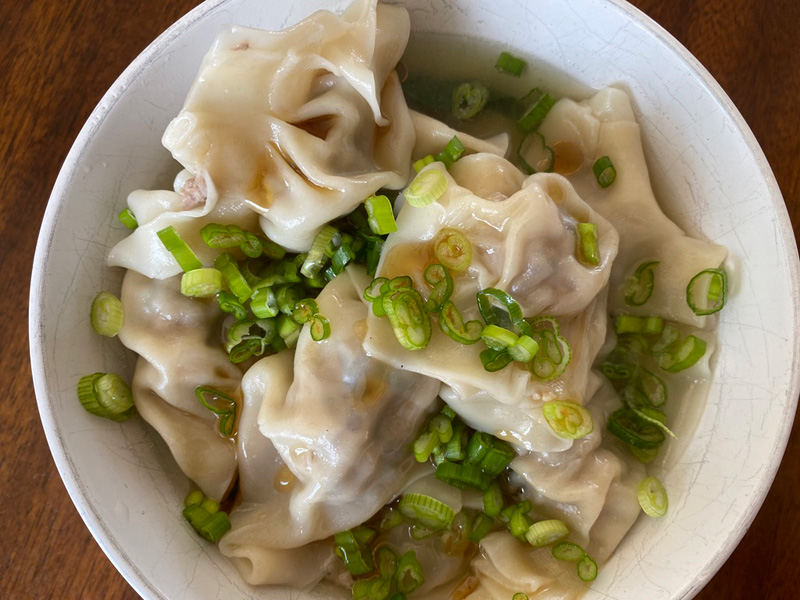
“I want to make room for home cooks to be teachers, because first of all, I want to communicate that being a home cook is a legitimate role,” says Tong. “I think home cooks are the backbone of how people eat in America.”
“[My friend Aerin Park] makes amazing Korean food,” he continues. “Her kimchi is way better than what you can buy at any grocery store. So why shouldn’t we ask her to show other people what she does?”
Although food is the main attraction, Tong has a deeper goal for Hot Wok Academy. “I feel like the rise of the pandemic, especially [the coronavirus] being called the China virus by former President Trump, or the Wuhan virus, I feel like tangibly it really did create anti-Asian sentiment in the U.S. in a way that I had never felt before—and I’ve been in the U.S. my whole life, 43 years now.”
“I cannot do nothing. I have to do something. Food is a wonderful connector, an equalizer, something understandable for all people. It’s a really great way for the people of the Twin Cities to have close, prolonged, enjoyable connections with all kinds of Asian people. So that’s one of the subtexts of Hot Wok Academy: helping people to connect to Asian people to understand them.”

